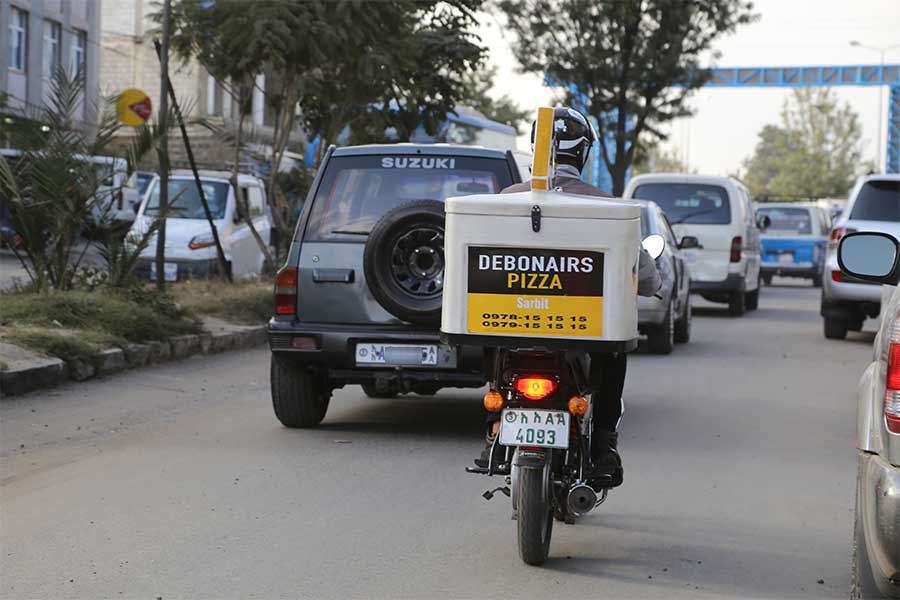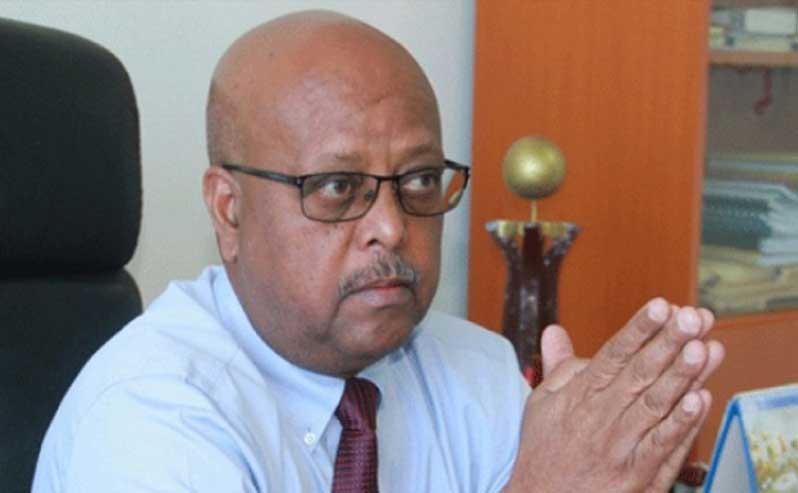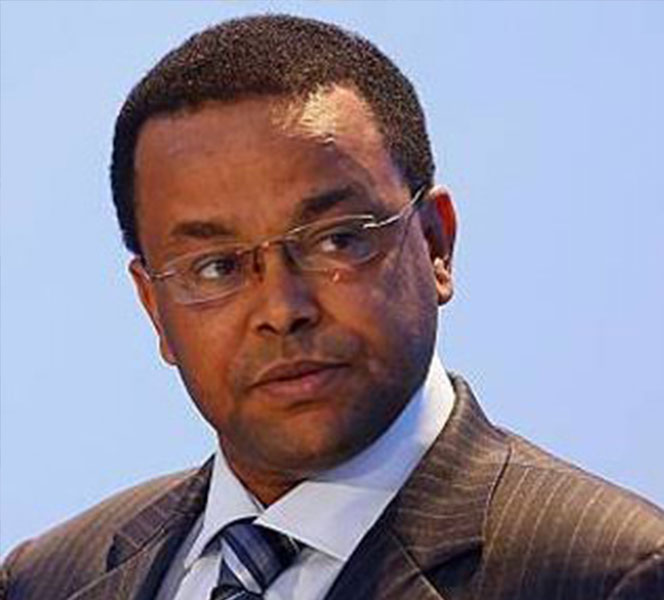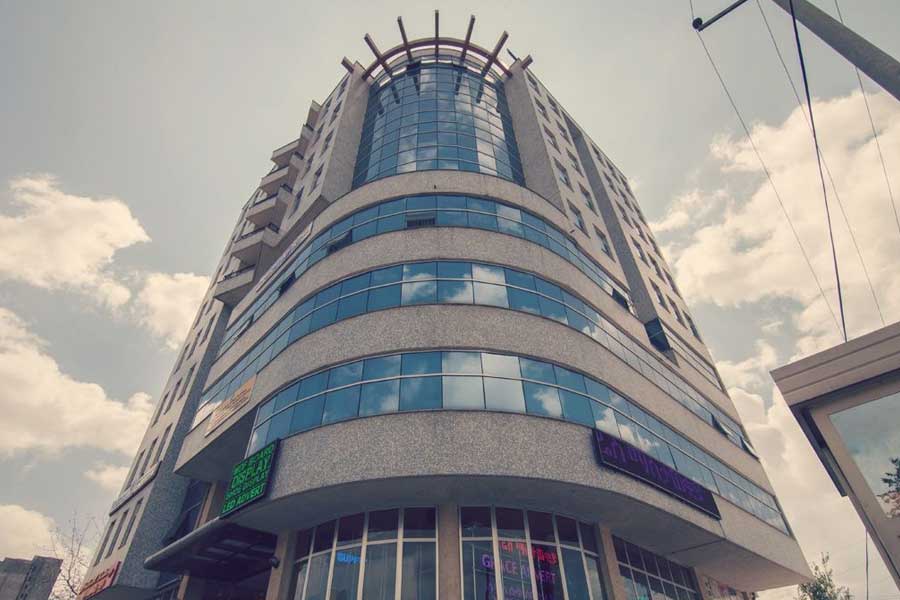
Lion International Bank (LIB) has exhibited promising growth in recent years but lags behind its peers in key financial indicators.
The past two years have been daunting for the executives of the second-generation commercial bank following the outbreak of a civil war in the Tigray Regional State, where it had more than half of its branch networks. The war caused losses in its branches, resulting in immense financial loss for the Bank.
“Several branches suffered looting and damage to property,” Gebrehiwot Ageba (PhD), board chairman of Lion Bank, told some of the 12,000 shareholders gathered at the Hilton in December 2022.
The net profit of Lion Bank has been declining for consecutive years, reaching 268.81 million Br in the last financial year, a 19pc decline from the previous year and a significant drop from two years ago. It fell short of its peers in the industry, such as Zemen (1.4 billion Br), United (one billion Birr), Bunna (881 million Br), and Abay (933.3 million Br).
Lion Bank’s profitability was lacklustre compared to its peers. Its net profit margin of 7.1pc was the lowest in the industry, showing that it may be less efficient at converting interest income into net profit. Zemen Bank leads not only the pack; its net profit margin of 60.6pc was the highest for all banks.
Gebrehiwot blamed the “unfounded defamation” the Bank was subjected to and the “poaching of experienced” employees for the lacklustre performance.
According to Abdulmenan Mohammed, a financial statement analyst, several factors contributed to the disappointing results, such as declining net interest income, significant losses in foreign exchange dealings, soaring loan charges, and other asset impairments.
The Bank made a substantial loss from foreign exchange operations, making a loss of 176.73 million Br.
“It’s a shocking result that needs the management’s attention,” said Abdulmenan.
While the interest income slightly increased by 2.99pc to 3.79 billion Br, its interest expense rose by 13.5pc, resulting in a declining net interest income. Fees and commissions plummeted by 54.1pc to 73.58 million, while other incomes dropped by 32.8pc to 127.37 million Br.
Lion Bank’s executives have faced the daunting task of addressing Lion Bank’s weaknesses in profitability and efficiency to maintain its upward trajectory and become a trendsetter in the banking sector. They will have to focus on cost management and streamlining lending to avoid over-reliance on loan operations, which may expose the Bank to higher risks in case of loan defaults.
Lion Bank’s asset base of 32.9 billion Br is smaller than larger banks such as Awash Bank (183.3 billion Br) and Dashen Bank (117.1 billion Br). However, its size is relatively similar to its peers, such as Zemen (35.1 billion Br), Bunna (34.1 billion Br), and Abay (40.6 billion Br). Its subscribed capital of 3.8 billion Br was the lowest among its contemporaries, falling behind Zemen’s 6.3 billion Br, United (7.2 billion Br), Bunna (five billion Birr), and Abay (5.9 billion Br).
Lion Bank’s loan-to-asset ratio stood at 72.2pc, indicating that two-thirds of its assets are loans and advances. A common feature of the industry, banks in Ethiopia strongly focus on lending activities. Lion’s loan-to-deposit ratio of 91.7pc shows that it uses a significant portion of its deposits for lending activities, which may expose the Bank to higher risks in case of loan defaults.
The Bank’s net interest margin at 53.5pc was moderate in profitability from lending activities. However, its efficiency ratio was relatively high at 87.2pc, signalling potential room for improvement in cost management. Lion Bank’s return on assets (ROA) was low at 0.82pc, with modest profitability to its total assets.
To rebuild Lion Bank, the burden falls on the executive team led by Daniel Tekeste, appointed a year ago, following the departure of Getachew Solomon. Daniel has a couple of decades of experience under his sleeves, climbing the corporate ladder, starting as a junior officer with the state-owned Commercial Bank of Ethiopia (CBE). Daniel studied business management and completed his post-graduate studies in business administration at Addis Abeba University.
He is the fifth CEO of Lion Bank since its incorporation in the mid-2000s, with a 108 million Br capital raised from 3,739 founding shareholders. The Bank’s paid capital increased by a low rate of 2.4pc to 2.57 billion Br, and the capital adequacy ratio (CAR) was 14.6pc.
Mikiyas Fikadu, a shareholder, has a 30,000 Br stake he bought six years ago when he was a staff member. He observed the last two years were challenging, but the Bank kept thriving because of loyal customers.
“The hard times have passed,” Mikiyas told Fortune.
Mikiyas advises the bank to become a trendsetter focusing on creative technology, as the banking sector habitually releases identical products.
The Bank opened only two branches in the capital last year, bringing its total to 278, where 4,189 workforce are serving.
Yonas Getachew is one of these, serving as a branch manager for two years at Saris Branch. He received the last financial year report with mixed feelings, acknowledging the conflict’s impact on the Bank’s performance in the preceding years.
“I believe that better days are coming,” he said.
PUBLISHED ON
Mar 25,2023 [ VOL
23 , NO
1195]

Featured | Nov 23,2019

Fortune News | May 25,2019

Radar | Sep 26,2021

Fortune News | Mar 26,2022

My Opinion | Jul 30,2022

Fortune News | Mar 28,2020

Radar | Jan 07,2022

Fortune News | May 16,2020

Fortune News | Apr 20,2019

Fortune News | Feb 12,2022

Dec 22 , 2024 . By TIZITA SHEWAFERAW
Charged with transforming colossal state-owned enterprises into modern and competitiv...

Aug 18 , 2024 . By AKSAH ITALO
Although predictable Yonas Zerihun's job in the ride-hailing service is not immune to...

Jul 28 , 2024 . By TIZITA SHEWAFERAW
Unhabitual, perhaps too many, Samuel Gebreyohannes, 38, used to occasionally enjoy a couple of beers at breakfast. However, he recently swit...

Jul 13 , 2024 . By AKSAH ITALO
Investors who rely on tractors, trucks, and field vehicles for commuting, transporting commodities, and f...

Jun 28 , 2025
Meseret Damtie, the assertive auditor general, has never been shy about naming names...

Jun 21 , 2025
A well-worn adage says, “Budget is not destiny, but it is direction.” Examining t...

Jun 14 , 2025
Yet again, the Horn of Africa is bracing for trouble. A region already frayed by wars...

Jun 7 , 2025
Few promises shine brighter in Addis Abeba than the pledge of a roof for every family...